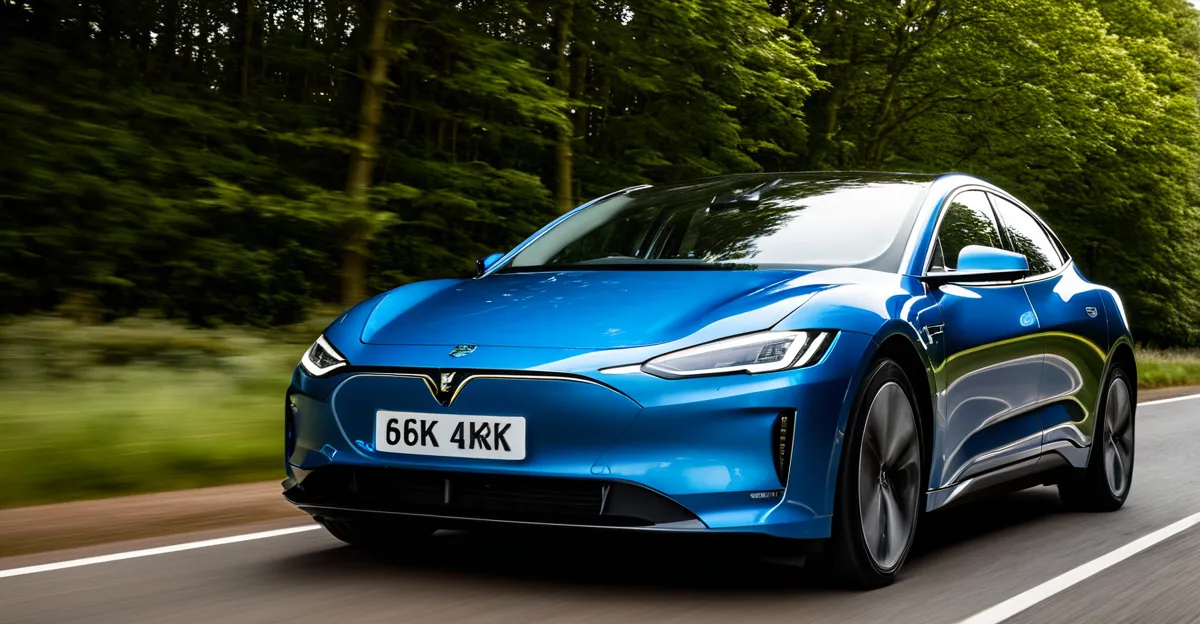Strategic Investments in Electric Vehicle Production
UK automotive companies have aggressively increased their electric vehicle production capacity by expanding manufacturing facilities and launching dedicated EV production lines. Major automakers are channeling substantial EV investment into new plants equipped to handle the specific demands of electric drivetrains and battery assembly. This financial commitment ensures not only higher output but also the integration of cutting-edge manufacturing technologies suited for EVs.
Significant resources are also being allocated toward EV research and development (R&D). UK automotive companies are focusing on enhancing vehicle efficiency, battery performance, and integration of advanced features. This strategic EV investment supports the development of new electric models that cater to evolving consumer preferences and regulatory requirements.
Also to see : What Are the Challenges Faced by the UK’s Automotive Industry?
A practical example includes recent launches of fully electric models by well-known UK car manufacturers. These new vehicles are produced on specially designed lines, emphasizing innovation and scalability. Such proactive strategic investments highlight the UK automotive industry’s determination to lead in the global electric vehicle production race.
By prioritizing EV investment in facility expansion and R&D, UK companies demonstrate a robust commitment to shaping the future of sustainable transport. This approach positions them to capitalize on growing market demand and regulatory pushes for cleaner vehicles.
Have you seen this : What is the future of electric vehicle infrastructure in the UK?
Compliance with Government Policies and Regulations
UK automotive companies navigating EV policies UK must adapt to stringent emissions targets set by both the UK government and the European Union. These electric vehicle regulations mandate progressive reductions in carbon emissions, compelling manufacturers to align their electric vehicle production with regulatory frameworks. Compliance involves redesigning vehicles to meet emission standards and incorporating zero-emission models to satisfy electric vehicle mandates.
A key question often arises: How do UK automakers leverage available support while ensuring policy compliance? The answer lies in actively engaging with government incentive programs and grant schemes aimed at accelerating EV adoption. These incentives reduce financial barriers for companies investing in EV technology, allowing for expanded production and research initiatives.
Brexit-related regulatory changes have added complexity by introducing new trade and certification requirements. UK companies must navigate divergent UK and EU rules, ensuring their EVs meet both markets’ standards. This dual compliance often requires adjustments in manufacturing processes and supply chain logistics.
In summary, EV policies UK shape decision-making across design, production, and distribution. UK automotive companies’ ability to respond effectively to these regulations determines their success in sustaining growth and competitiveness in the evolving EV landscape.
Innovation and Technology Development
UK automotive companies are driving EV innovation by focusing heavily on advancements in battery technology and charging infrastructure. Developing batteries with higher energy density and faster charging capabilities remains a top priority. Cutting-edge research aims to extend vehicle range, reduce charging times, and enhance battery longevity, all vital for consumer acceptance and market growth.
Additionally, the integration of smart and connected vehicle features is reshaping electric vehicle production. These technologies allow real-time monitoring, over-the-air updates, and improved diagnostics, making EVs more user-friendly and reliable. UK automotive firms are investing in software platforms that support vehicle-to-grid communication and autonomous driving technologies, underpinning future mobility trends.
Collaborations between automotive manufacturers, technology companies, and academic institutions fuel innovation. These partnerships accelerate breakthroughs by combining expertise in materials science, artificial intelligence, and energy management. For example, several UK universities are pioneering research into solid-state batteries, promising safer, more efficient EV power sources.
Such sustained EV innovation efforts equip UK companies to stay competitive globally. By advancing automotive technology UK and embracing connected solutions, the industry addresses evolving consumer needs while positioning itself at the forefront of the electric vehicle revolution.
Workforce Retraining and Skills Development
UK automotive companies face a critical need to equip their workforce with expertise aligned to electric vehicle production. Traditional manufacturing roles differ substantially from those required for EV assembly, battery technology, and software integration. Therefore, effective EV job training is essential for a smooth transition.
How do UK firms approach this retraining? They are implementing extensive programmes designed to reskill and upskill employees, focusing on electric drivetrain assembly, battery management systems, and advanced diagnostics. Collaborations with universities and technical colleges create specialised curricula that address emerging automotive technologies UK workers must master.
These partnerships also help develop digital skills necessary for connected vehicle features and autonomous driving tools. That connection ensures the automotive workforce UK remains prepared for future demands. For example, some companies run apprenticeship programmes pairing theoretical knowledge with hands-on experience in EV production environments.
Addressing workforce transition challenges proactively not only mitigates job displacement risks but also strengthens industry resilience. By investing in skills development, UK automotive companies cultivate a talent pool capable of sustaining innovation and maintaining competitive advantage in the evolving electric vehicle market.


